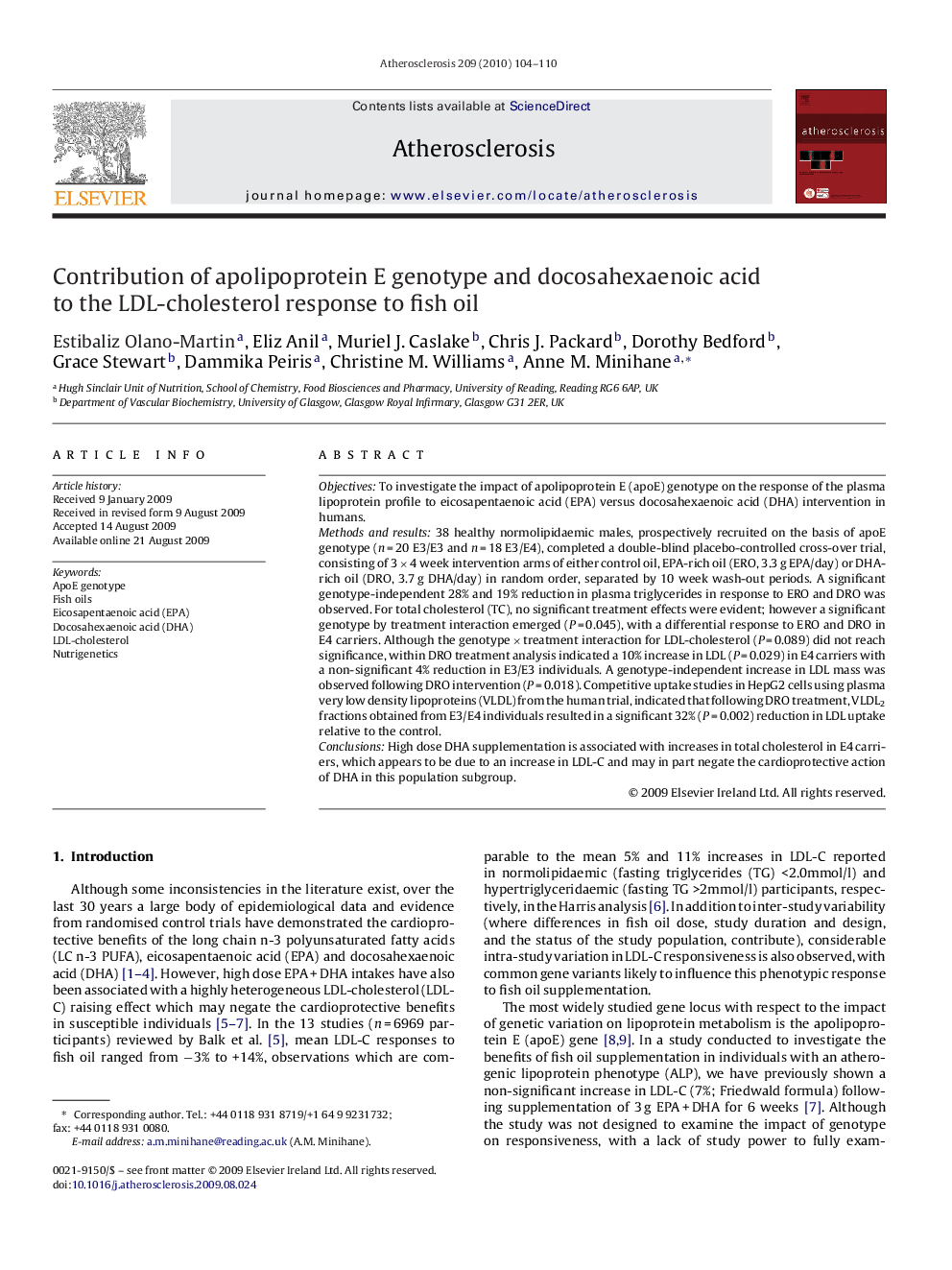| کد مقاله | کد نشریه | سال انتشار | مقاله انگلیسی | نسخه تمام متن |
|---|---|---|---|---|
| 5951317 | 1172413 | 2010 | 7 صفحه PDF | دانلود رایگان |

ObjectivesTo investigate the impact of apolipoprotein E (apoE) genotype on the response of the plasma lipoprotein profile to eicosapentaenoic acid (EPA) versus docosahexaenoic acid (DHA) intervention in humans.Methods and results38 healthy normolipidaemic males, prospectively recruited on the basis of apoE genotype (n = 20 E3/E3 and n = 18 E3/E4), completed a double-blind placebo-controlled cross-over trial, consisting of 3 Ã 4 week intervention arms of either control oil, EPA-rich oil (ERO, 3.3 g EPA/day) or DHA-rich oil (DRO, 3.7 g DHA/day) in random order, separated by 10 week wash-out periods. A significant genotype-independent 28% and 19% reduction in plasma triglycerides in response to ERO and DRO was observed. For total cholesterol (TC), no significant treatment effects were evident; however a significant genotype by treatment interaction emerged (P = 0.045), with a differential response to ERO and DRO in E4 carriers. Although the genotype Ã treatment interaction for LDL-cholesterol (P = 0.089) did not reach significance, within DRO treatment analysis indicated a 10% increase in LDL (P = 0.029) in E4 carriers with a non-significant 4% reduction in E3/E3 individuals. A genotype-independent increase in LDL mass was observed following DRO intervention (P = 0.018). Competitive uptake studies in HepG2 cells using plasma very low density lipoproteins (VLDL) from the human trial, indicated that following DRO treatment, VLDL2 fractions obtained from E3/E4 individuals resulted in a significant 32% (P = 0.002) reduction in LDL uptake relative to the control.ConclusionsHigh dose DHA supplementation is associated with increases in total cholesterol in E4 carriers, which appears to be due to an increase in LDL-C and may in part negate the cardioprotective action of DHA in this population subgroup.
Journal: Atherosclerosis - Volume 209, Issue 1, March 2010, Pages 104-110